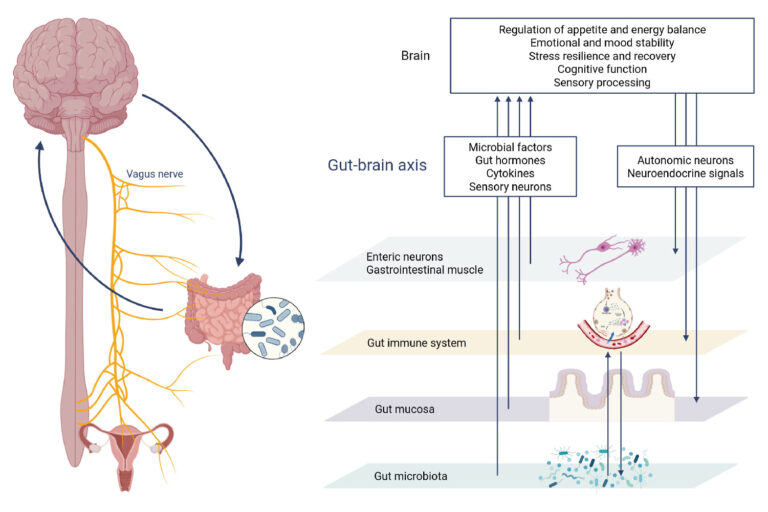Gut-Brain Connection in PCOS: What Researchers Found
by Anna Sandhu | Sep 18, 2025
Reviewed by Dr. Arun, M.Pharm., PGDRA, Ph.D.

The condition called Polycystic Ovary Syndrome (PCOS) affects many women. It brings changes in hormones, periods, and often leads to weight and mood issues. Now, scientists are looking beyond hormones and onto the gut — the community of tiny bacteria living in your digestive system.
This article examined how the gut microbiome (that’s the collection of bacteria in your gut) might be connected to mental health in women with PCOS. The authors found that although research is still early, there is a pattern: women with PCOS and mood difficulties often show shifts in their gut bacteria.
Here’s what they found:
- Several studies (though small in number) show that in PCOS there is an increase in certain types of gut bacteria (especially a group called Gram-negative bacteria) when mood and mental health issues are present.
- These shifts in gut bacteria may link to mental health through something called the gut-brain axis. That means the bacteria can affect the gut barrier, inflammation, hormones, and even brain signals.
- Because the gut may have greater “leakiness” or produce more inflammatory signals in some women with PCOS, these effects may reach the brain and affect mood.
- The article says the evidence is still preliminary. Many of the studies had small sizes, and some had high risk of bias. That means we cannot say yet that gut bacteria cause the mood issues in PCOS. We only see that they are associated.
What does this mean for you? If you’re managing PCOS and also experiencing mood changes, low mood, or anxiety, this research suggests your gut health may be another piece of the puzzle — along with hormones, diet, exercise, and stress management. It does not mean that fixing gut bacteria alone will fix mood or PCOS, but it does reinforce the idea of whole-body care.
In short: Women with PCOS who face mood or mental health challenges often show gut-microbiome changes. The gut-brain connection may play a meaningful role in their wellness journey. More research is needed to confirm these findings and to understand what gut-active tools might help.
More Information: Gut feelings–the gut microbiome as a regulator of mental health in polycystic ovary syndrome. DOI: https://doi.org/10.1016/j.fertnstert.2025.09.014
